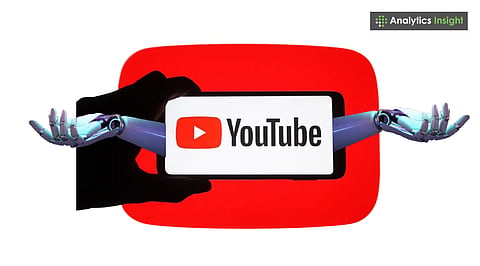

YouTube’s latest artificial intelligence experiment has sparked a controversy over platform control and creators’ rights. The video giant has started employing cutting-edge technology to ‘unblur, denoise and enhance’ some user-uploaded videos, without letting creators and viewers know.
Even though the platform technically has the right to step in, the action raised some serious questions about transparency, consent, and the increased role of YouTube AI in online content.
Invisible content editing has influenced what viewers see for decades. Celebrity images have been retouched secretly by fashion magazines for years, usually with a negative reaction from the subjects.
In 2003, Kate Winslet criticized British GQ for digitally reducing her waist for a cover photo. On other social media platforms, users often filter pictures to boost engagement. A 2021 examination of 7.6 million Flickr images revealed edited photos received more views and engagement.
YouTube AI video edits represent a new plateau of platform-led modification, where the creators themselves have no control.
Also Read: YouTube's Gift Goals Feature: How to Use it?
YouTube is not the only platform to have come under fire for editing without creator consent. TikTok faced criticism in 2021 when Android users found that there was an automatic ‘beauty filter’ added to their videos. Apple, back in 2018, owned up to its Smart HDR feature, having smoothened the skin of users on newer iPhone models, describing it as a ‘bug’ after backlash.
The issue isn’t just confined to texts with social media; in Australia, MP Georgie Purcell’s image was altered by AI on Nine News without any courtesy or disclosure. The issue appears more intricate in the literature. Jane Friedman noted that books made with AI were sold on Amazon under her name, a risk as it puts her reputation at risk.
As the use of modern technology becomes increasingly pervasive, experts believe that disclosure remains the simplest safeguard. There is the potential to preserve trust through open communication about algorithmic editing, even if it is AI use that is acknowledged and is assumed to erode confidence momentarily.
Hiding tool usage tends to cause greater outrage when uncovered. However, as AI software becomes more advanced, it becomes harder to detect manipulated content, exposing audiences to subtle manipulation.
There is a lot of content to be consumed, and safeguarding oneself falls on the users. Verifying the facts from multiple authentic sources and prioritizing social media feeds from credible sources are some of the appropriate methods.
The integration of AI into YouTube points to a much larger ethical problem: these platforms have overwhelming power over online content, yet both the creators and users have limited control. The integration of the technology in day-to-day media is going to raise even more questions about consent, transparency, and accountability, and audiences are going to have a harder time navigating a world where reality is filtered and manufactured.
